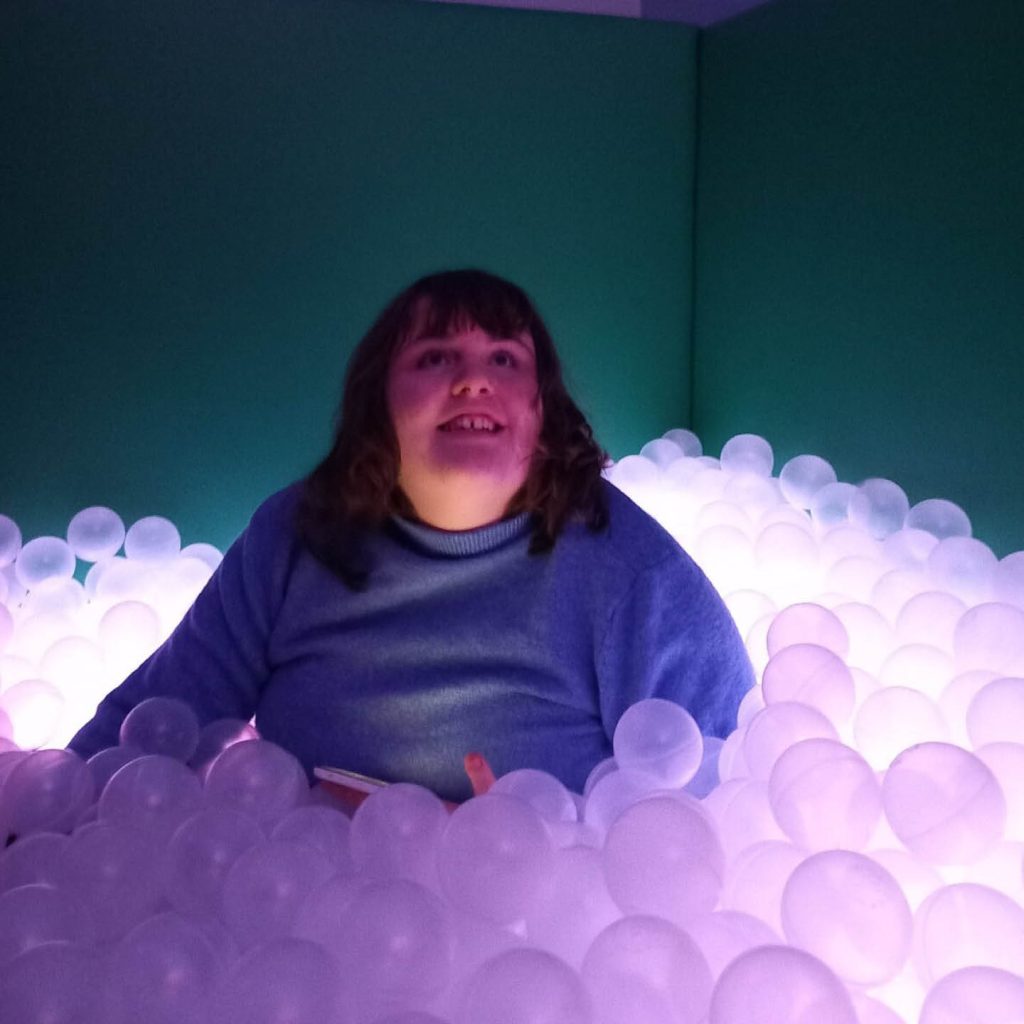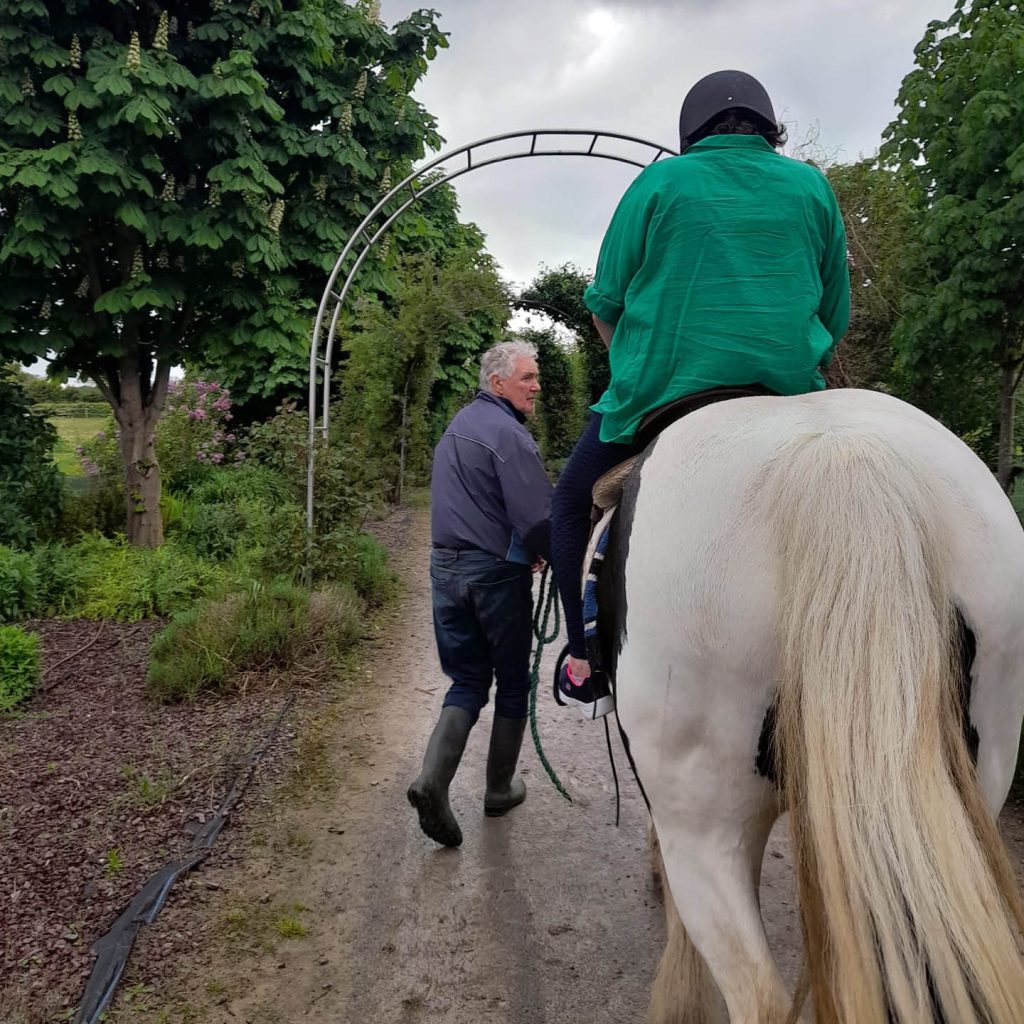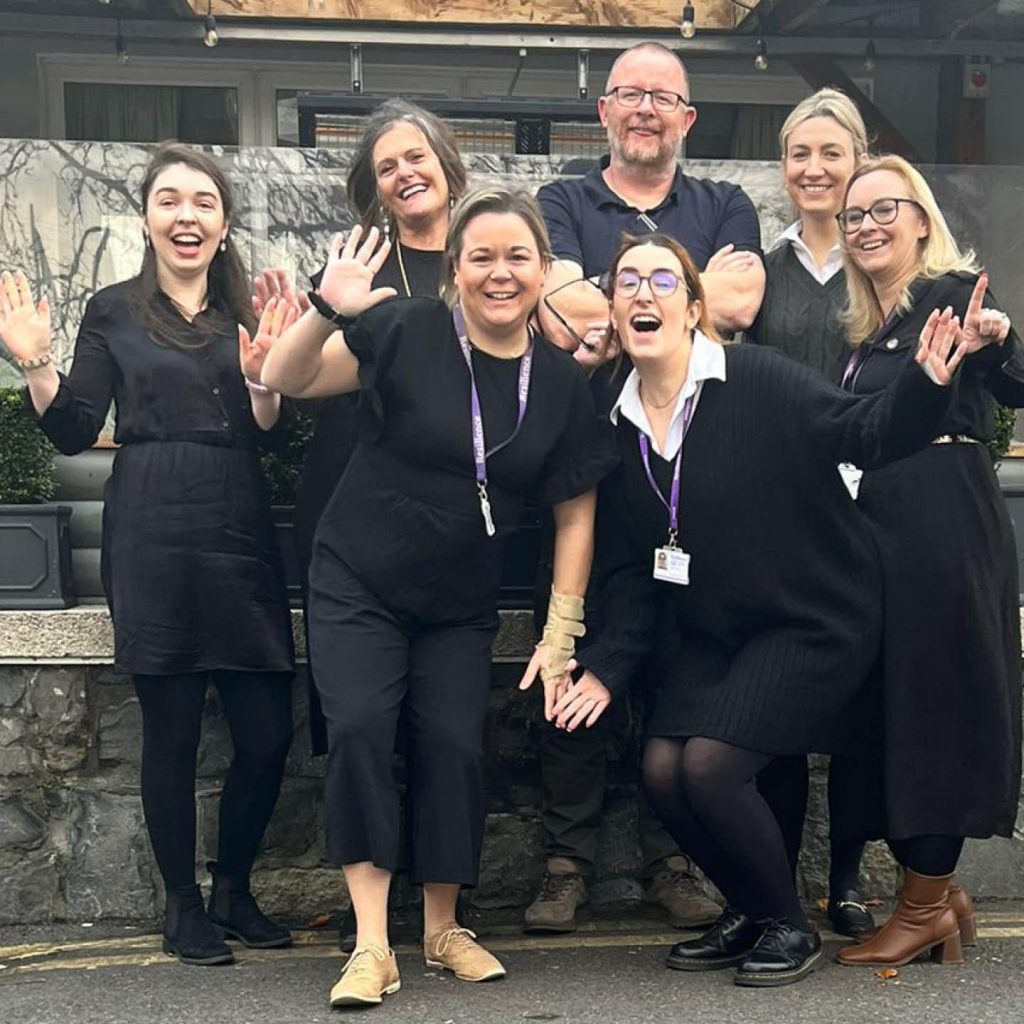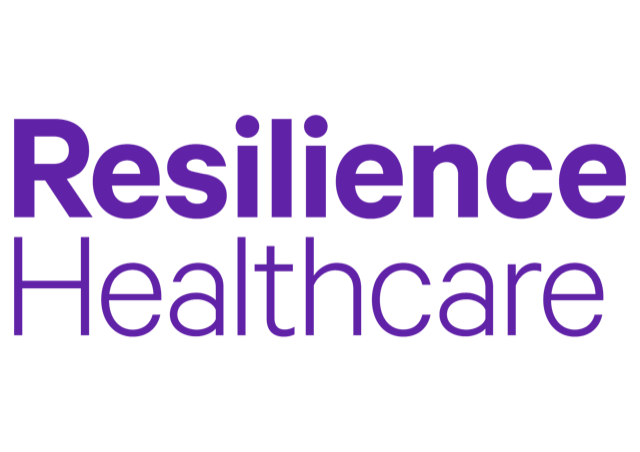11 December 2023
Employee Spotlight: Meet Jennifer Doyle Occupational Therapist
Meet Jennifer Doyle, a dedicated Senior Occupational Therapist at Resilience Healthcare. With 16-years of experience in the field of disabilities under her belt, Jennifer brings a wealth of knowledge and passion to her role. We recently caught up with her to talk about what inspired her to become an OT and what her day-to-day responsibilities look like. From her creative problem-solving to her work in innovative equine therapy initiatives, Jennifer sheds light on the diverse nature of her work as a clinician at Resilience Healthcare.
Good morning, Jennifer. Could you tell me a little bit about yourself and your background?
Jennifer: “Yes, I’m Jennifer Doyle and I’m a Senior Occupational Therapist. I have been working with Resilience since January 2021, so I’m coming up to my two year anniversary now in January. Aside from that, I am a very busy mom of two. I have two kids and a husband, and I live in Charleville in County Cork.
Previous to this, I studied in Aberdeen, Scotland. And after I graduated, I came back to Ireland and started working in Kerry for a service for children and adults with moderate to severe intellectual disability. And then about 10 years ago now, all the services in Kerry integrated. Then I joined a team in Listowel, which was a service for naught to 18-year-olds with complex disabilities. In that job, I was also in the Autism Assessment Unit, so we assessed children and from naught to 18 with Autism. So I’ve been working for 16 years now and it’s all been in the area of disabilities!”
“I always liked that she loved to see the OT coming—not so much the physio!”
And how did you decide that occupational therapy was a career you’d like to pursue?
Jennifer: “I have a sister, Caroline, who is 30 now, and she has Autism, an intellectual disability, and complex mental health. So yeah, when Caroline was small, we used to have the Occupational Therapist come to visit our home. And I always liked her approach with Caroline. I always liked that there were concrete independence goals. When it especially began to appeal to me was when we did the toilet training with Caroline because she wasn’t toilet trained for a long period of time. But then we started toilet training with the Occupational Therapist and we achieved that goal. And that has made a massive impact on our lives and on hers from an independence perspective!
And I always liked that it was a play-based approach with her as a young child. I always liked that she loved to see the OT coming—not so much the physio! But because she loved to see the OT coming, it was always kind of a career that I thought, yeah, I would like to do that! I was always going to work in the field of something with disabilities, just from having Caroline in the home, but I just always liked the fact that they love to see the OT coming.”
So, it made a strong impression on you when you were quite young then? And I guess you want to be the one that puts the smile on people’s faces!
Jennifer: “Absolutely—I never want them to dread to see me coming!”
Did anything draw you to working with Resilience Healthcare in particular?
Jennifer: “Yeah, I suppose I had worked in disability sector my whole career and I was kind of at a stage in my career that it there was no step forward. So, I kind of had to hit the brakes. I was a senior for a long time and, while I was enjoying the work, my career with them became kind of stagnant. We weren’t getting enough staff, there were a lot of waiting lists, and so on. It wasn’t that I was unhappy in my job, but I was finding that I was finding it hard to progress. So, then this job came up, and I just said I’d take a leap of faith and see what I what I thought of it!”

“This job came up, and I just said I’d take a leap of faith and see what I what I thought of it!”
And were there any benefits that surprised you in this position?
Jennifer: “I suppose the biggest thing for me was the pension. Everyone was saying don’t leave your good pensionable job! But Resilience does provide us with a pension after six months of employment. So I would say to any new OT out there: don’t let that stop you! You know that this is also a good pensionable job.
Another thing about Resilience Healthcare is that they are a huge advocate for CPD (Continuous Professional Development). They really emphasise us as therapists, you know, being constantly up to date. Any courses we’re looking for any resources, any kind of gap in our knowledge that we’d like to fill—they’re very open to us learning more and enhancing us as clinicians.”
What does your day-to-day look like as an OT with Resilience Healthcare?
Jennifer: “So, my day can be very, very, very different every single day. Monday mornings, we all meet as a team and we go through all the referrals that have come in from the last week, from all the different houses, managers, team leads, and we sit together virtually. So, I’m at home every Monday morning, and then it could be meetings all day.
You’re always on the road on Tuesday, so depending on whether you’re doing new assessments or going to the houses, you’ll be working on one, two, or three pieces of work. For example, tomorrow morning I’m doing an equipment review. So I’ll go and look at the wheelchairs, look at the hand rails, look at things that might be outstanding. And then I do a lot of sensory assessments. So that involves going in and looking at each individual service user and looking at their sensory needs and at the environment that they’re in.”
What does a sensory assessment involve?
Jennifer: “Sensory assessments are based on observation. I would always do an observation if I don’t know the person, but we have the advantage in Resilience that you kind of know everybody. If they’ve been with us for a while, then we know them. So that’s great! And then we do a sensory interview with key worker. And you look at the house from an environmental perspective and see if their sensory needs are being met within the house. And if they’re not, then we see what we can do and what kind of recommendations can we put in place for them.”
How do you bring creativity to your role?
Jennifer: “As a therapist, I have to do this all the time! I always have bags of tricks in my car. My car is absolutely full of different things because you never know what a person’s mood will be when you’re going into a house. In Resilience Healthcare, I have the advantage of knowing 99% of the service users that are in with us, at least on a surface level. Like, I know if I’m going to see one young man in Tipperary that I have to bring my Cork flag and I have to put on my Cork accent, and I have to know all my hurlers. So, I’ll have things in my bag—things like a hurley or a sliotar ready for him. That way, if we’re in real distress, you know that you have those things for the service users. You genuinely have to be creative every single time you go in!”

“My day can be very different every single day.”
Are there any other advantages to working with Resilience Healthcare? Anything you really enjoy?
Jennifer: “So I do horse riding with some of our service users because that’s a massive passion of mine. And I suppose we are very lucky that we have an equine facility quite near here in Charleville. And David Doyle, my dad, is the manager of the equine services at that facility. So we know the environment, it’s safe, and the people that are there are all trained. We’re very lucky that we can use that facility when we need it. And we try and use that facility for any of our complex behaviours of concern. So, it’s kind of a stepping stone for getting them into mainstream equine facilities, and our aim then is to get them into the community. So that is a big passion of mine as well!”
Could you tell me a little bit more about that? Why are you so passionate about it?
Jennifer: “I guess what draws me to it is my own experience from when my sister was having a lot of complex behaviours at home. We always had a few horses at home, and we had one particular horse named Lady. And we always found that Lady had a very calming effect on Caroline.
Lady was really able to co-regulate with Caroline and regulate her emotions. They had a really lovely bond.
With somebody who has extremely complex behaviours, they’re in control 90% of the time. You know they’re controlling us as their caregiver. They’re controlling the situation as much as they physically and possibly can. But when they’re on top of a horse? The horse is in control. The benefits of that are massive.”
Great! And do you have any accomplishments or things you’re proud of over the years?
Jennifer: “Yeah, I suppose there are a few, but one main one was getting a power wheelchair for one of our service users who was a huge falls risk. And his physical ability was really, you know, deteriorating. When I met him first, if you saw him on paper, they say he’s got a learning disability and he’s got a physical disability… You know, he probably wouldn’t have got the opportunity to trial a power wheelchair somewhere else. But just from meeting with him and talking to him and getting to know him really well, I said, you know what? I’m going to chance it.
In my last job, there’s no way we would have gotten to try it! He would have been waiting a long, long time even though he’s got his own money. But, thanks to Resilience Healthcare’s positive risk-taking approach, we did it! We did the assessment with him. We did our continuous risk assessments, and we trialled it, and it worked! And now he is absolutely flying it.
When he’s out and about, do we have little hiccups? Yes, we do. But the benefits hugely outweigh and the negative for him. And we’re readjusting it again now in the New Year because he’s progressed so much that we need to make the back rest a little bit more comfortable for him! Because he’s in the wheelchair a bit more than we thought he would be at the start.”
What would you tell someone considering joining the team as an OT in Resilience Healthcare?
Jennifer: “You manage your own diary, which is brilliant. You know, we’re very flexible. And we have a fabulous clinical services team, and we work so, so well as a team. So, while you are managing a lot of complex behaviours, you have massive support from Behaviour Support Specialists, Speech & Language Therapists, and a Clinical Services Manager who is also a nurse and has training in psychotherapy and CBT. So, you’re dealing with very experienced clinicians.
We’ve got the positive risk-taking approaches with Resilience that are amazing. You don’t have to wait for an answer. Everything is as fast as it possibly can be. So, from equipment down to changing somebody’s environment. You don’t have to wait for money and things like that. Any resources you need? They’re very good to get you those.
Our CPD is massive to them. They want you to progress as much as you can, so that it benefits the whole service. They emphasise courses, and anything you want to do to progress. They’re very family orientated as well, you know, which is lovely and for busy working moms. Your family comes first, and you know they’re very approachable if, you know, your child gets sick. So you can work from home if possible.”

“They want you to progress as much as you can, so that it benefits the whole service.”
Anything you’re looking forward to in 2024?
Jennifer: “Yeah, I suppose, one thing I didn’t mention is the trauma-informed care. That’s been one thing that we’ve been looking into for the last kind of five to six months. And trauma-informed care is something that we’re really progressing with as clinical service team. And I know that as a company, this is something that we’re really going to be looking into in the New Year. I’ve done a good few courses now on it, and I’m training myself up to be a champion of it. We’ve rolled out two or three site-specific trainings on trauma-informed care and it’s something I know that the clinic services team are looking at big time for 2024.
And you know, it’s Resilience Healthcare, as a whole, that’s doing this. Not just you know the staff on the ground. It’s right up to the CEO level, which is brilliant. So everybody’s getting that knowledge so everybody can contribute. So that’s exciting for next year!”
I’ll ask you a fun question to wrap up! Do you have any fictional character who has had a profound impact on you?
Jennifer: “I think the fictional character who has made a massive impact—we use her in our training and I referenced her quite a lot—is Matilda from Roald Dahl. Even though she’s not formally diagnosed with Autism in the book, we all know now that she probably would be in this day and age. So she has had a profound impact on us as a clinical services team.
We use the music from Matilda in our trainings, and we use the song, “Quiet,” a lot to emphasise what it’s like for some of our service users who have experienced trauma and have massive dysregulation and sensory issues. We use those videos a lot to show staff what it’s like. What our service users perceive even though our staff are being so kind.
When they’re out in the community, incidents can happen very quickly, and there these videos give our staff a good insight into seeing, you know, that it’s not us, you know what I mean? It’s our approach that we have to take with them. So, yeah, we use Matilda!”

